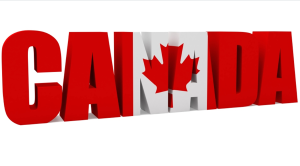Hi guys, I have never heard of Blink Health prior to seeing the article (which I posted earlier) about the company suing its former executives. I did some research afterwards because I thought they were really interesting and wanted to see how big this company is. Apparently it has been around for a while and its member numbers are in the hundreds of thousands. I found an article in 2016 talking about how Blink Health is disrupting the price hike (sounds a bit like Schumpeter). Embedded in the article is a video of the co-founders interview (in case you just want to listen instead of read).
Monthly Archives: March 2018
Misapplying eBay?
After reading eBay v. MercExchange, LLC, I attempted to determine what the implications of the case have been. This article from 2016 was an interesting read that discusses why district courts seem to be misapplying the case.
The article first notes that the case has “drastically changed the legal landscape for when courts issue injunctions in patent cases,” citing to the fact that denials of injunctions have quadrupled in the aftermath of the case. Supposedly, the party that has suffered the most is the “patent trolls,” as they are not actively producing goods or services. The reason for these changes? According to this scholar, district courts are not citing Justice Thomas’s majority opinion in newer cases, but are instead relying on Justice Kennedy’s concurrence.
Rather than relying on the four principles of equity outlined in the majority opinion, district courts are considering four other factors that were included in Justice Kennedy’s concurrence: 1. Whether the patent holder practices the patent or licenses the patent 2. Whether the parties are competitors 3. Type of patent and 4. Whether the infringing component is a significant part of the good. The article concludes by arguing that considering these factors is at odds with the majority opinion, “Where district courts have adopted categorical rules denying injunctions to certain types of patent holders or in cases involving certain types of patents, they have misapplied eBay.” It will be intriguing to see if my classmates found similar opinions in the wake of this case.
Startup suing former executive for unlawful copy-cating
This startup called Blink Health was created to help provide medicine at lower prices. Some of its former executives left the company and created their own startup called Hippo (I feel like this happens often with startups). Blink Health recently filed suit against Hippo for creating a copy-cat startup. This article I found explains how Blink Health works and how Hippo is substantially similar to it.
IP as an Innovation Asset
 This article outlines three key components of a $85M “National Intellectual Property Strategy” being adopted in 2018 by the Canadian government. The program seeks to help Canada’s innovative companies by providing (1) a pilot patent collective, (2) IP education and legal clinics, and (3) IP tools.
This article outlines three key components of a $85M “National Intellectual Property Strategy” being adopted in 2018 by the Canadian government. The program seeks to help Canada’s innovative companies by providing (1) a pilot patent collective, (2) IP education and legal clinics, and (3) IP tools.
First, the patent collective will ensure that IP generated in Canada with taxpayer funding is available to Canadian innovators. Second, the IP education and legal advice will specifically target entrepreneurs providing them with basic information on the difference between patents and trademarks in order to help them get their feet underneath them when starting a business. Finally, the IP tools will aim at disseminating information regarding available IP that has been generated in Canada.
The goal of this national strategy is to “pivot from past understandings of IP as a simple legal mechanism, to IP as an innovation asset that can drive domestic economic growth.”
I know very little about IP law and am interested in looking back at this article after our class on Tuesday to see how it fits into our discussion on Entrepreneurship, Innovation, & IP.
The Supreme Court and Patent Trolls
In line with the discussion topic for the upcoming class about the Supreme Court and how it handles the little guy vs. patent trolls, this article talks about the Supreme Court’s major ruling last year in TC Heartland v. Kraft Foods. The ruling in this case abolished the practice of forum shopping in patent cases. Prior to the case it was very common for patent disputes to be brought in plaintiff favorable jurisdictions, specifically the Eastern District of Texas. The problem this creates is patent trolls were given an unequal playing field where they could essentially bully other parties to settle since winning in these districts was an uphill battle. This video is an interesting documentary from the perspective of “the little guy” who takes on a patent troll and exposes some of the shady practices at work that the Supreme Court tried to deal with in the TC Heartland case. I personally feel the Supreme Court got it right.
THE NEW BREED – SOCIAL ENTREPRENEURS

Australian Filmmaker, Pete Williams
This article harkens back to the Pozen article we read during our first week of class and also relates to our class projects. The article introduces an Australian filmmaker who is creating a documentary on social entrepreneurship called “The New Breed“. He follows the journey of three social entrepreneurs as they use principles of entrepreneurship to take on major social issues around the globe. From his experience filming the documentary, the filmmaker reached the conclusion that, “[i]t’s easy to sit on the sidelines and criticize social entrepreneurs for the work they’re doing, but I think that’s mainly an excuse for not acting.” The documentary is set to be released this summer.
I am very interested is seeing how this film compares/contrasts with Poverty, Inc.
Evidence for the importance of regulation to entrepreneurship
Since we are now starting with our projects, I found this article interesting, because it shows the importance of policy to entrepreneurship and presents data that shows that regulation indeed plays a crucial role in the individual decision to start a new business.
The Supreme Court Case That Could Give Tech Giants More Power
The syllabus this week advises us to focus on the current Court’s attitude towards tech and innovation. According to a recent article by New York Times, a case currently before the Court could have large implications on how the Court regulates tech, or signals to Congress how to do so.
There have been recent calls for anti-trust regulation of large tech companies, according to NYT, “[o]n Monday the Court heard Ohio v. American Express, a case centering on a technical but critical question about how to analyze harmful conduct by firms that serve multiple groups of users.” And, although “the case concerns the credit card industry, it could have sweeping ramifications for the way in which antitrust law gets applied generally, especially with regards to the tech giants.”
Pre-Sony status for Disney Corp …
Here’s an interesting New York Times piece from 1984:
http://www.nytimes.com/1983/09/25/business/the-troubled-world-of-disney.html?pagewanted=all
And check this out, by comparison….
What’s old is new again …
Well, well, well — check this out, will ya??
